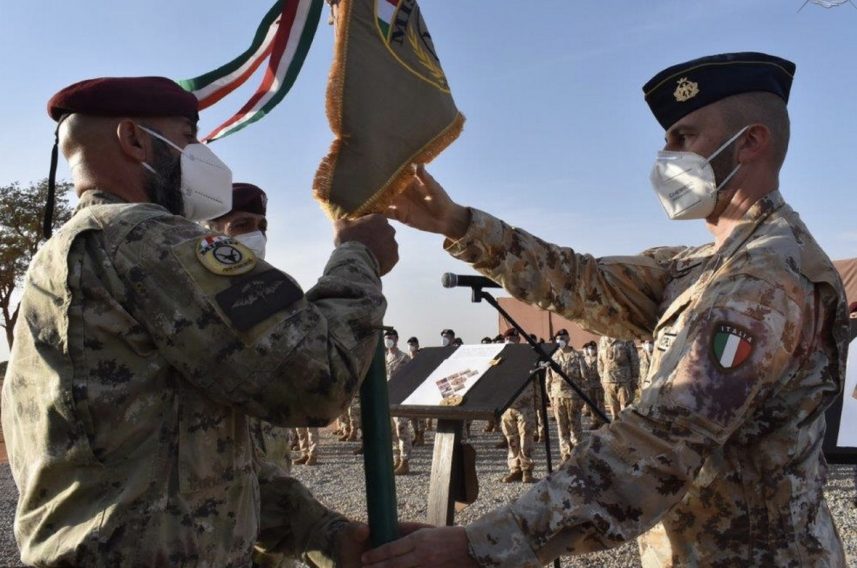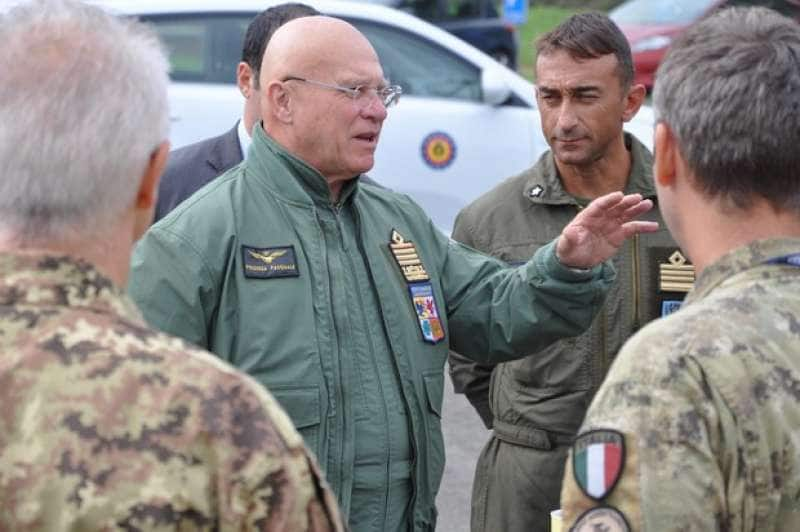The former French minister Hervé Morin compared the situation in Mali to that in Afghanistan: "We have a scenario that gets closer every day to what we have seen in Afghanistan. We came to fight terrorism and rebuild a state on a political agreement and we look more and more like an occupation force"Regretted Morin, who believes that it is no longer possible to remain in Mali" without political agreement ": for Morin, the internal political situation in Mali necessarily requires the end of the Barkhane operation.
Diplomatic sources consulted by Le Monde they give time until next February 17-18, when the European Union and African Union summit will take place, to find an alternative solution to the escape of the European military.
La Sweden announced that he would withdraw the 150 soldiers of the Takuba mission and the 250 of the UN Minusma mission. Also there Denmark he decided to withdraw his 100 men because they were considered uninvited by the Malian military junta. On 1 February the Norway announced that it had canceled its dispatch of soldiers to Mali, given the situation. The same Germany, with Foreign Minister Annalena Baerbock, questioned German participation in the EU training mission in Mali (Eutm Mali) and in Minusma.
The question that many European governments have asked themselves is: Are the conditions for effective action against terrorist groups still met in Mali?
General Pasquale Preziosa: "Africa is a mess of instability"
More than 114 million people ruled by the military have taken power illegally. There have been four successful coups in Africa in 2021 - there have not been that many in a single calendar year since 1999. United Nations Secretary-General Antonio Guterres called it "an epidemic of coups d'etat". Over the past 18 months, the military has overthrown the governments of the Mali, the Chadand Guinea, of the Sudan and time of Burkina Faso.
THEAfrica is a turmoil of instability, so the general Pasquale Preziosa, former head of the Air Force until 2016 and today president ofEurispes Safety Observatory.
The Sahel, analyzes the general, represents the "crossroads of African instability with religious claims supported by armed groups affiliated with al Qaeda linked to the marginalization of the northern regions of Mali"(Ispi). In addition to religious conflicts, there are also armed ones between opposing factions due to ethnic and political problems. The risk of violence in the region is very high and since 2010 there has been an increasing trend of new crises, including the Tuareg and Islamist rebellion in northern Mali (Ansar al-Dine-Islamic State of Iraq and ash-Sham in Greater Sahara, Jama'at Nusrat al -Islam wal-Muslim, al-Mulathamun Battalion) and the Boko Haram guerrillas in northeastern Nigeria.
Historically, the attacks of Al Qaeda began in 1998 in Nairobi and with the Arab revolutions of 2011 in Africa also the affiliates of the Islamic state of Abu Bakr Al Baghdadi. In Mali, 94% of the population (about 20 million) is of Muslim faith with more than ten ethnic groups, 13 local languages in addition to the official French one. The last coup (five total since 1960) took place in the recent summer of 2020. In this region, more than four times the size of Italy, where the risk of infectious diseases is defined as very high, identity and radicalism Islamic have played an important role in the push for armed mobilization for the opposition of even local interests.
In the region there is the commitment of the UN, since 2013 with theMinusma operation with results not yet visible, of the European Union with theOperation Eutm-M for the training of the armed forces, perceived by the locals "too theoretical". The French counter-terrorism mission (which has already reported 54 victims), called Barkhane, has lost the support of the Malian population, moreover, the French commitment in Mali has for some time fueled debates within France on the political and military expediency to continue the mission in consideration of the few results achieved and the declared aversion of the military junta. According to some Malian political parties, "only the people of Mali can put an end to the ongoing conflict".
The situation in Mali, therefore, is similar to that of Afghanistan at the beginning of the "Global war on Terrorism". Some analysts have called Mali the "new Afghanistan" of Africa.
Moreover, due to the fight against iihadism, military operations by a large coalition with many powers involved are still underway in some areas of Iraq and Syria, the results of which do not appear to be certain or yet definitive. The opening of military operations in Africa to combat Jihadism with the participation of a number of countries and minimal forces raises some doubts on the effectiveness of the global strategy to combat the terrorist phenomenon.
Italy, in particular, should question itself, after Afghanistan, on the lines to be followed to guarantee levels of national security adequate to the new world framework which sees a very demanding strategic competition to win the future. The stabilization of the international framework will not be without surprises. It is necessary to resort to history and his teachings, especially those inherited from the ancient Roman Empire due to threats from the South. The security of the Empire was obtained by strengthening the countries of North Africa and not by dispersing the efforts in areas of little commercial or strategic interest.
La Libya, la tunisia andAlgeria, just to name a few, are the countries of strategic interest for the security not only of Italy but for the whole of Europe. Military operations, even if peacekeeping, have very high costs, even for the G7 countries which, after the pandemic, had to raise the public debt to levels never seen before. Military operations have certain costs, but uncertain returns. Il Mali represents the new "Quagmire of trouble" in which not to slip in so as not to bequeath to the next generations not only a large financial debt, but also a strategic foreign policy debt.
The position of Italy
Defense Minister, Lorenzo Guerini, its The paper on 4 February, he confirmed that the Sahel is strategic for Italy also for reasons that are not strictly military: "Mali is a crucial country for balances in the Sahel region and, although the transition towards a return to democracy has slowed down, the choice to leave the country could give space to other actors seeking to strengthen their role in the region, also through the use of paramilitary groups " (Russian paramilitary group Wagner).
Guerini admits that in Mali "relations with the military junta are not simple. We must continue to set up an explicit confrontation on central points and directions to confirm our commitment".
Our country is present in that territory with the “Bilateral support mission in the Republic of Niger - MISIN", Commanded by the pilot colonel of theair Force, Davide Cipelletti, (with the geographical area of intervention also extended to Mauritania, Nigeria and Benin) in order to increase the capacities aimed at combating the phenomenon of illegal trafficking and threats to security, as part of a joint European and US effort for the stabilization of area and the strengthening of territorial control capacities by the Nigerian authorities and the G5 Sahel countries.
About 200 militar Italians, on the other hand, operated within the TF Takuba, guaranteeing medical evacuation capabilities of coalition personnel in operation through the use of the 3 CH 47 F transport aircraft of theArmy, in medevac configuration that make use of the necessary safety framework ensured by the 3 exploration and escort helicopters AH - 129D "Mangusta", of the 5th and 7th regiments of the Army Aircraft Brigade, framed in the Task Force “Jacana".

